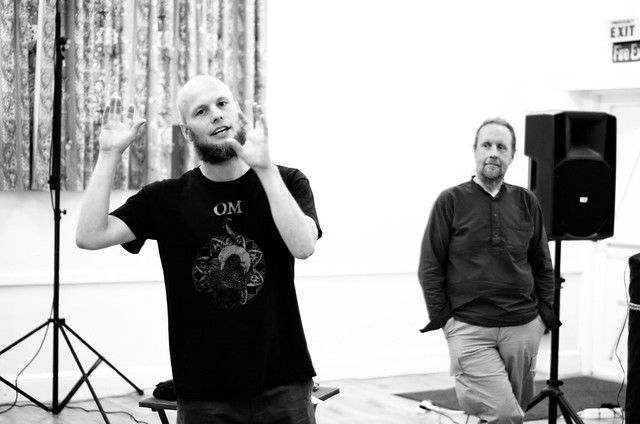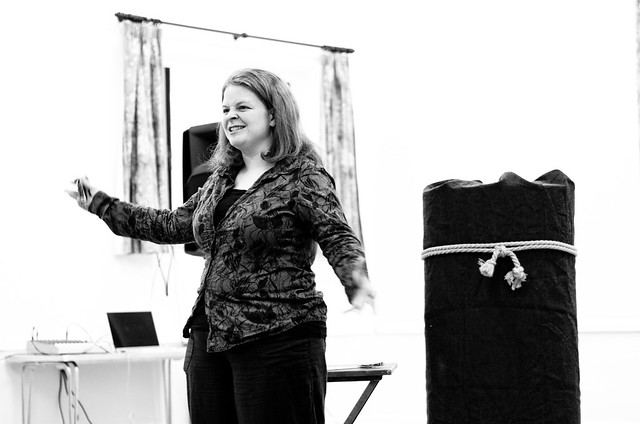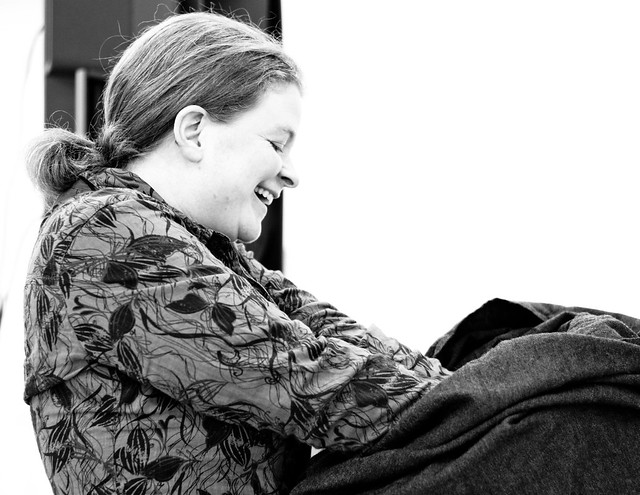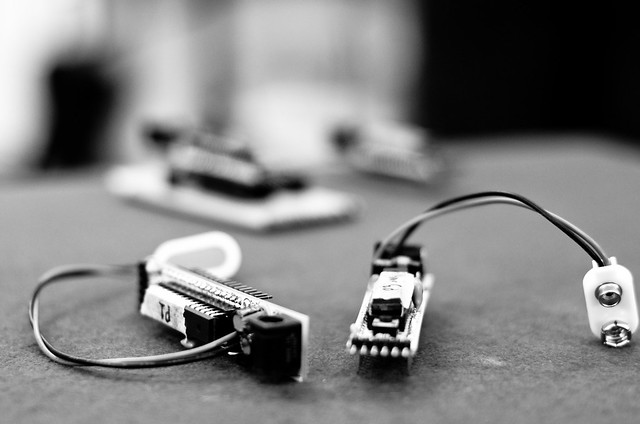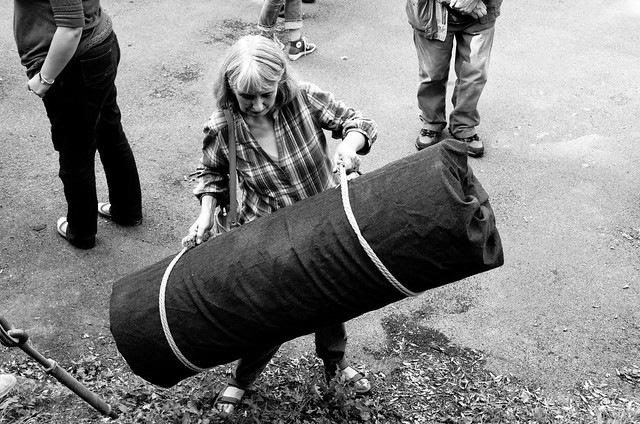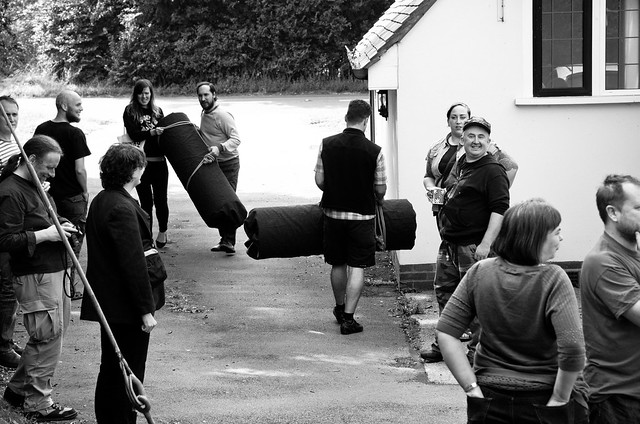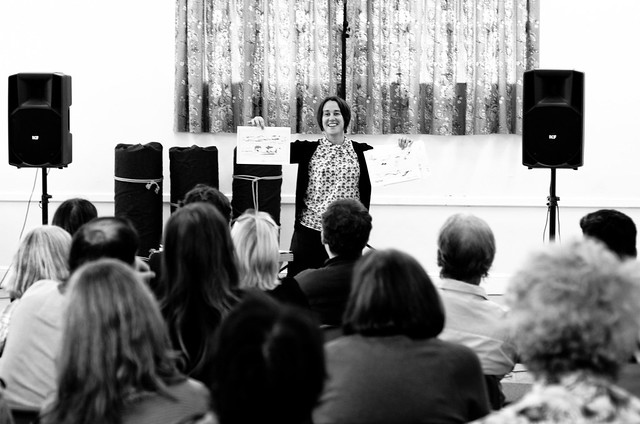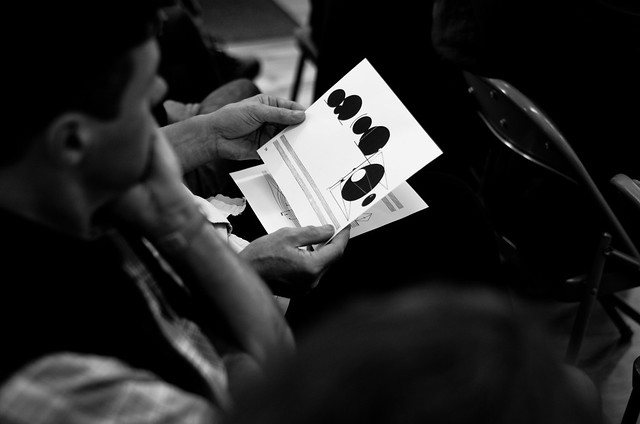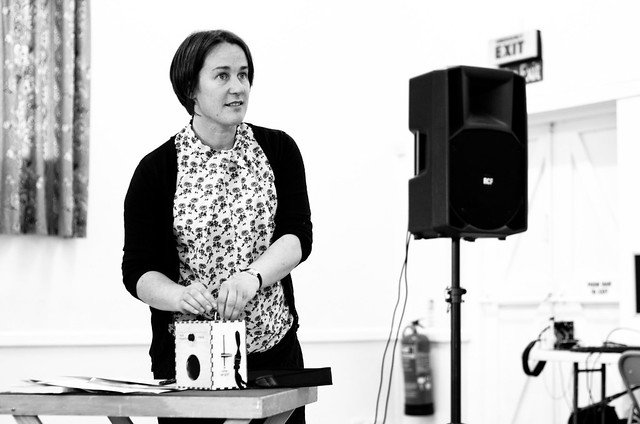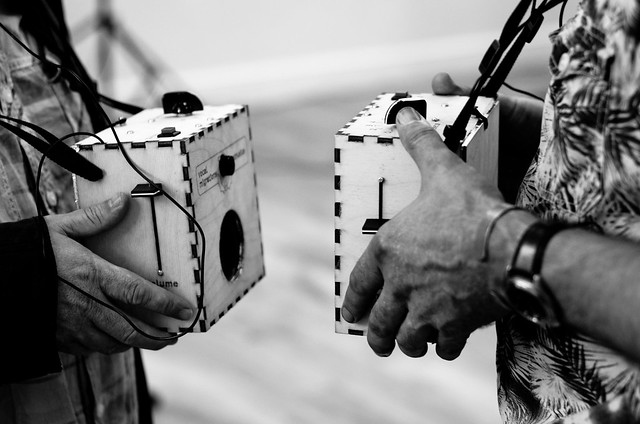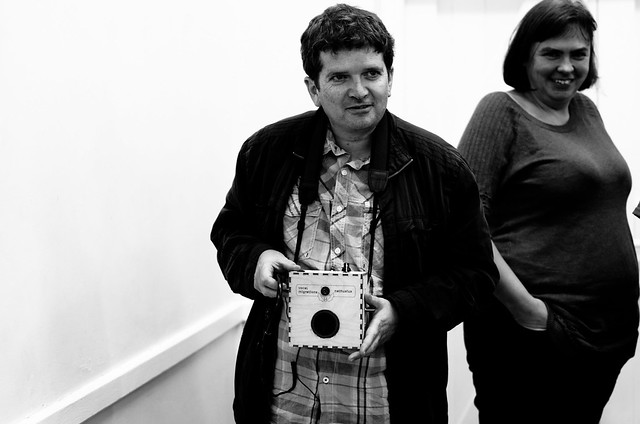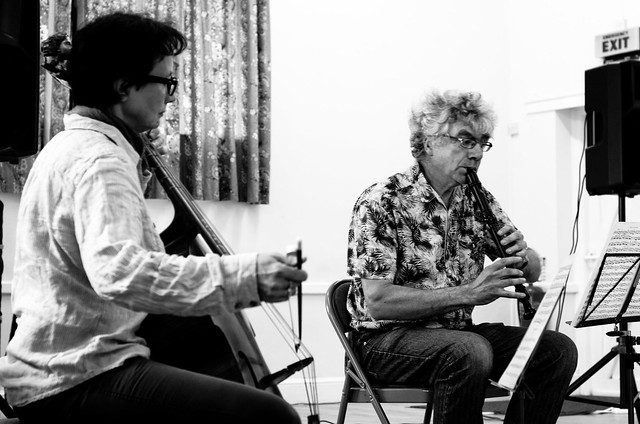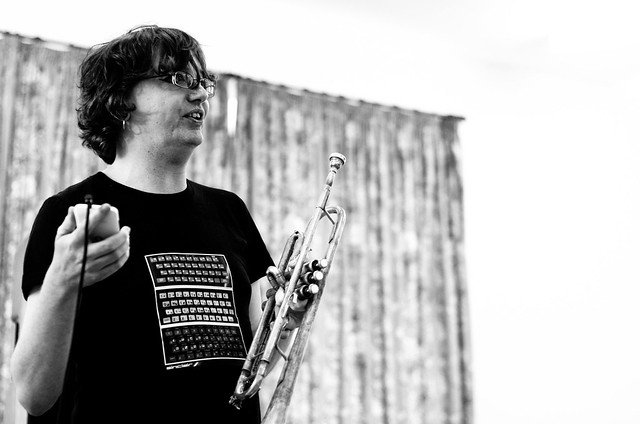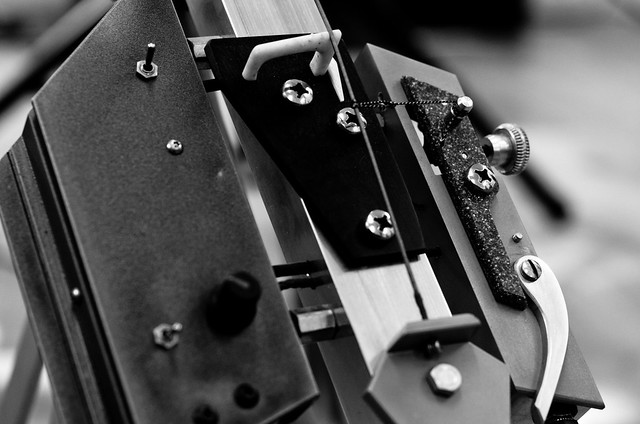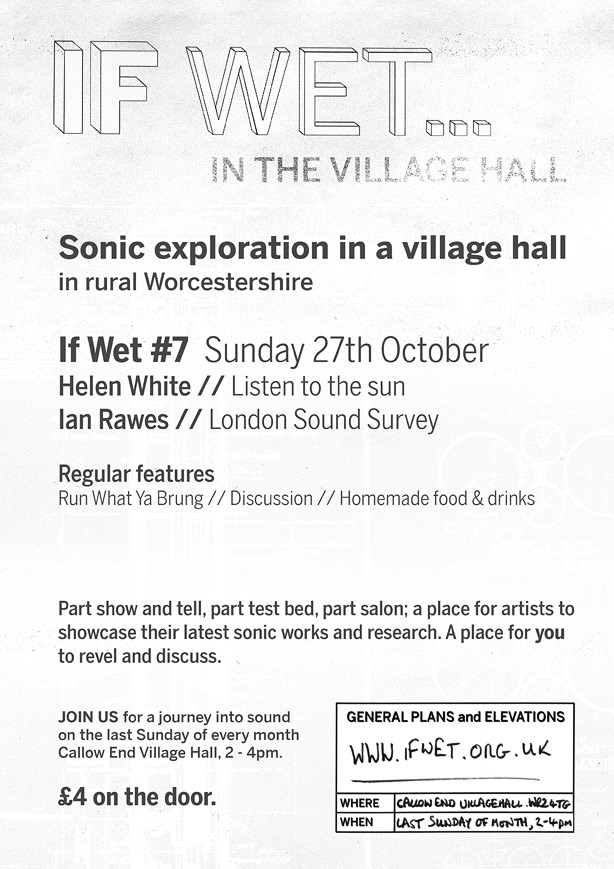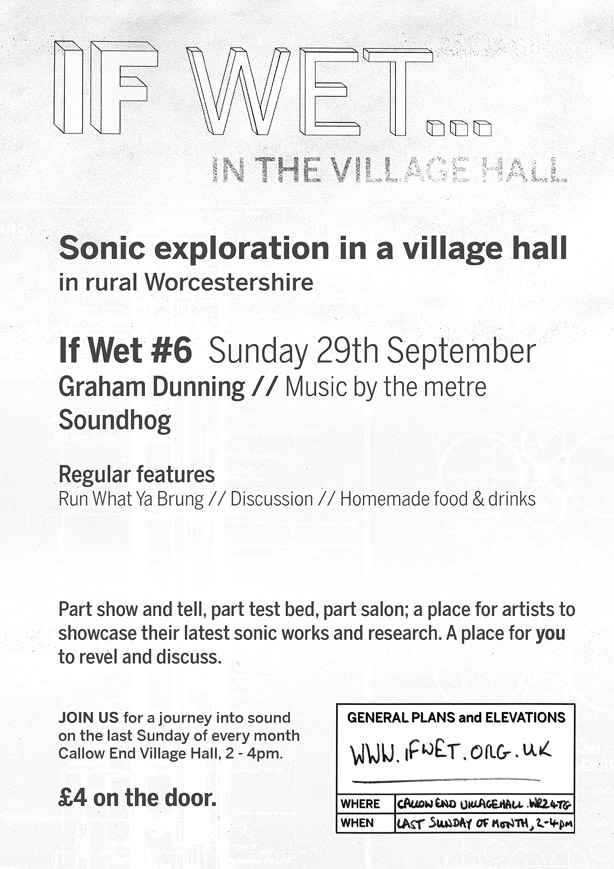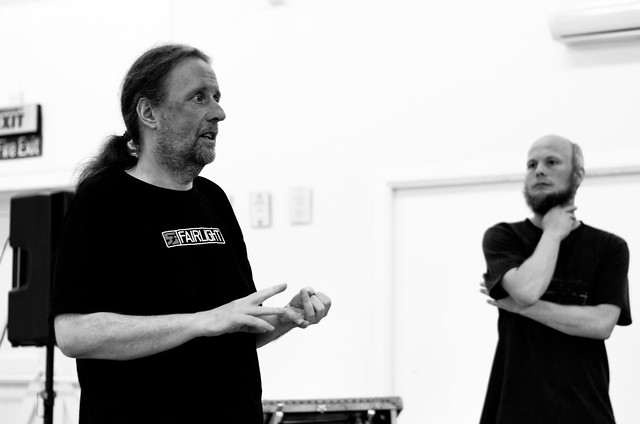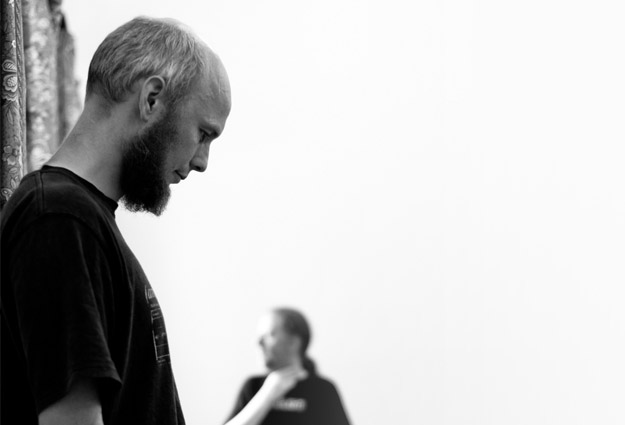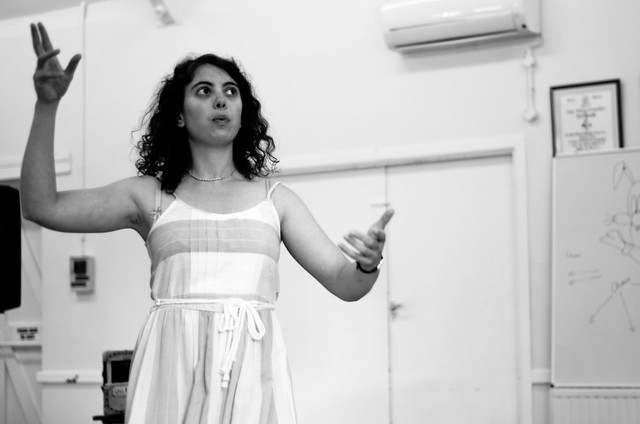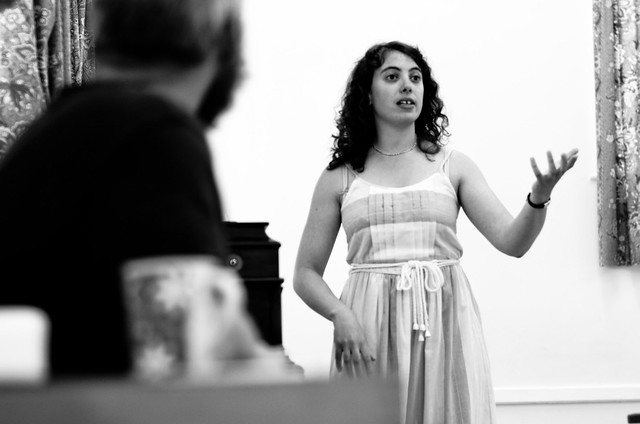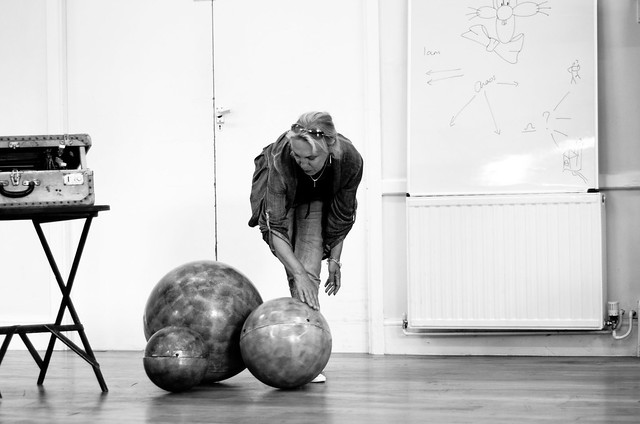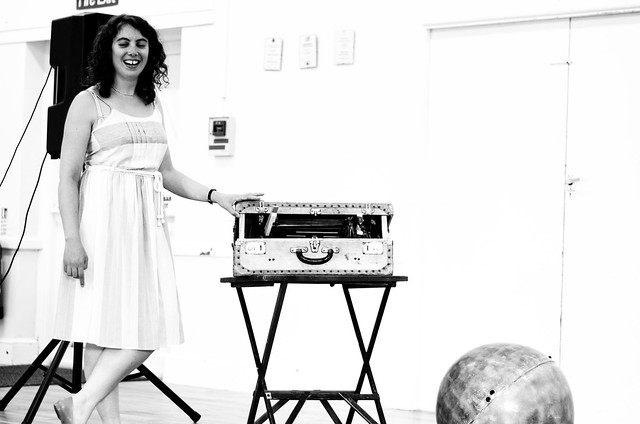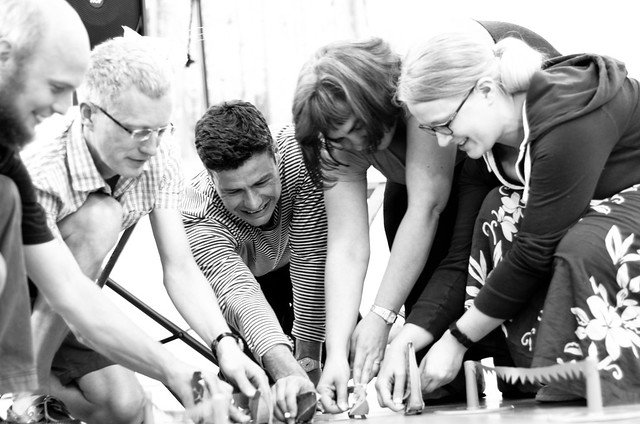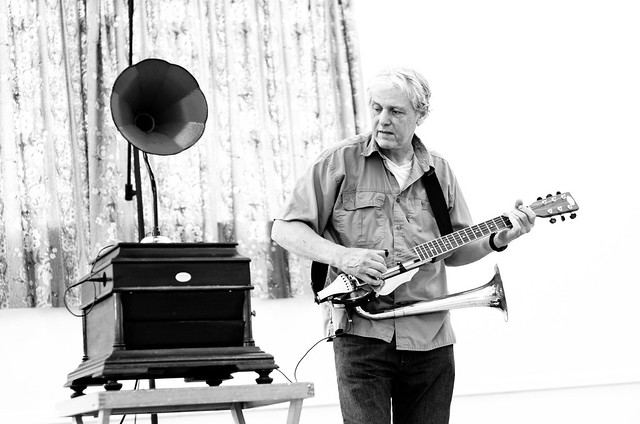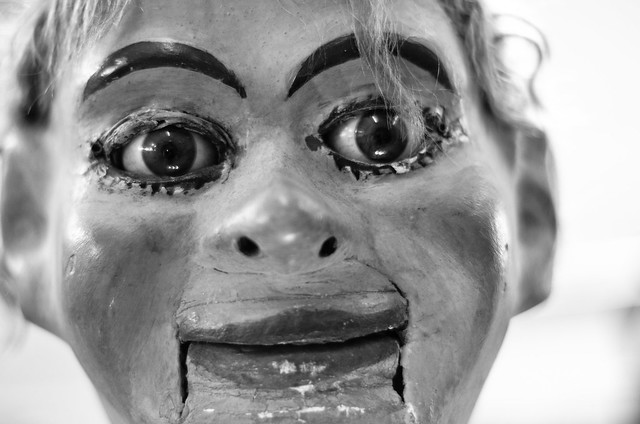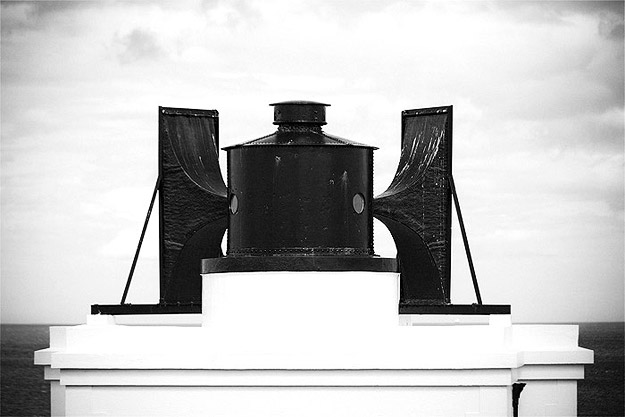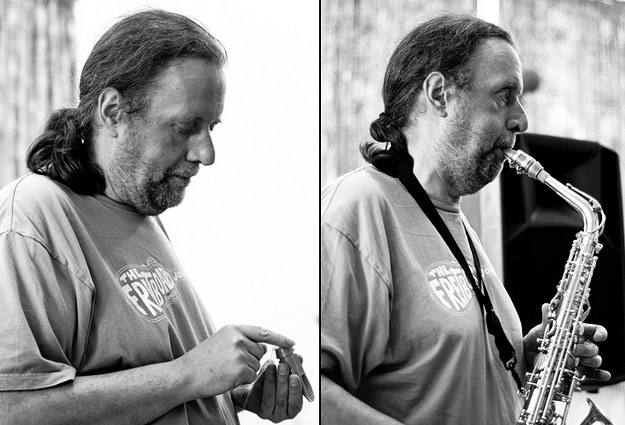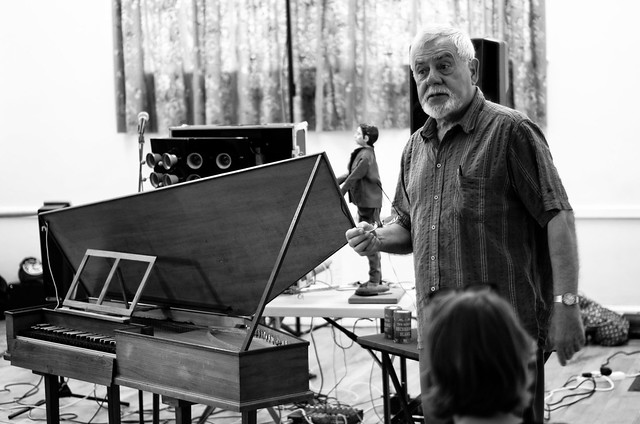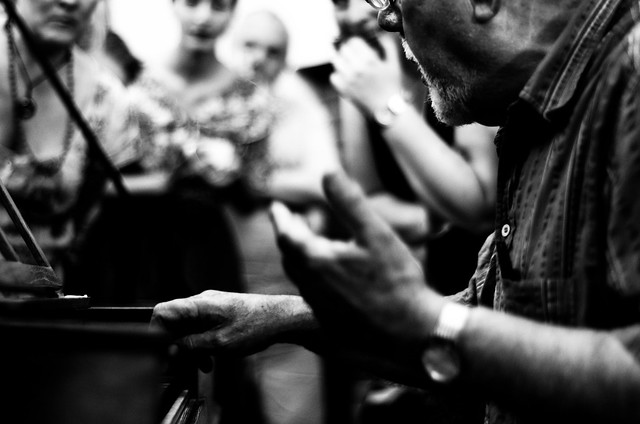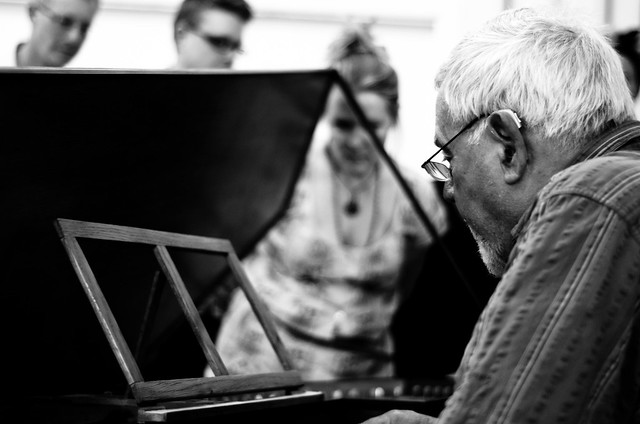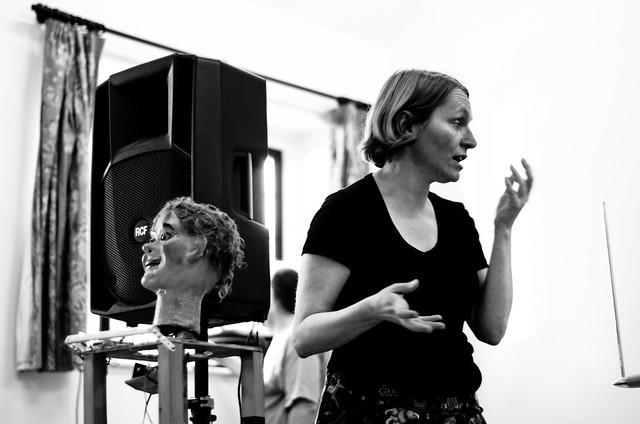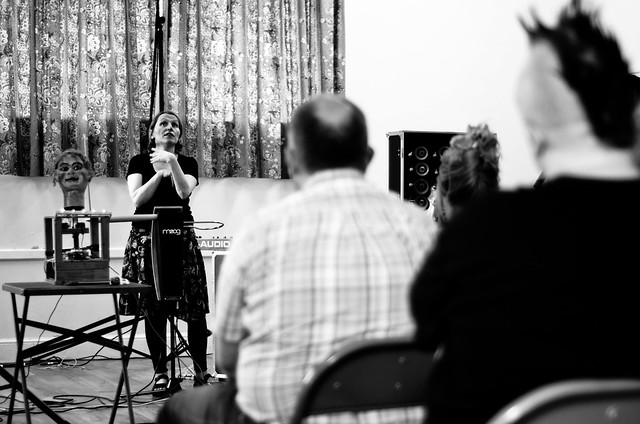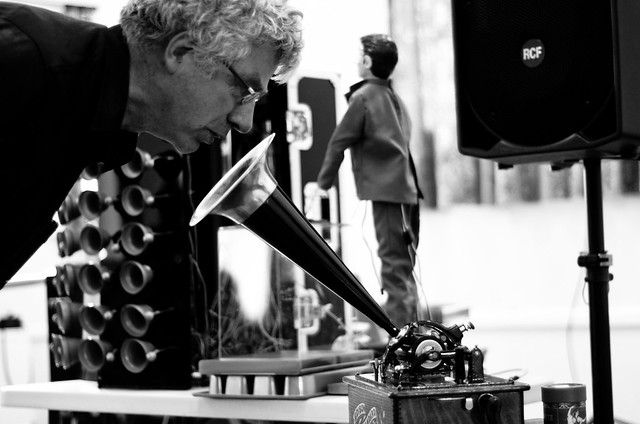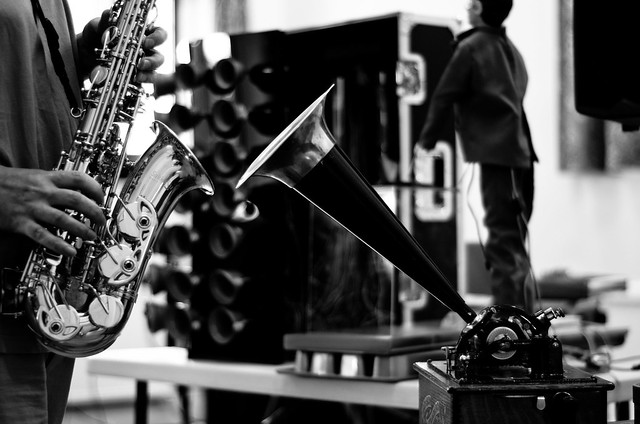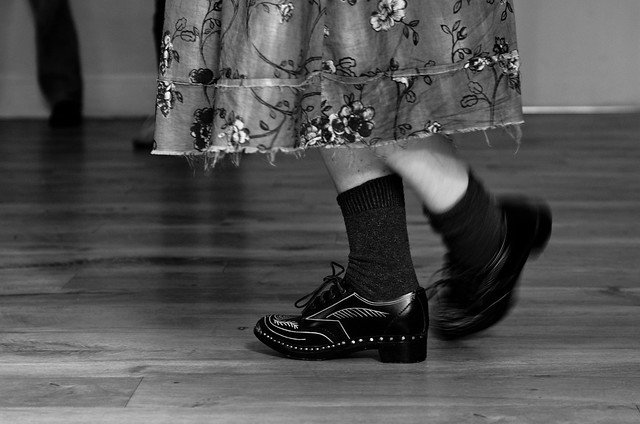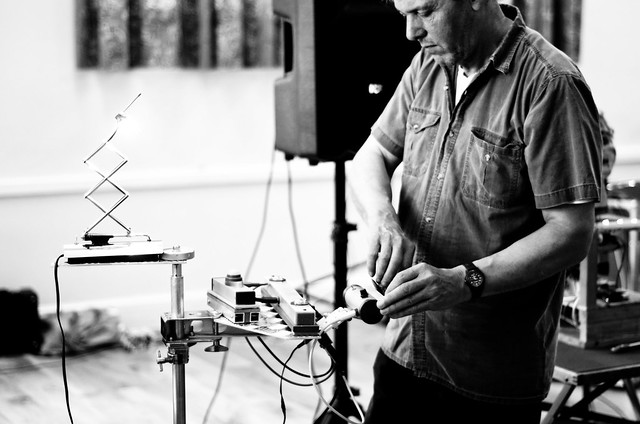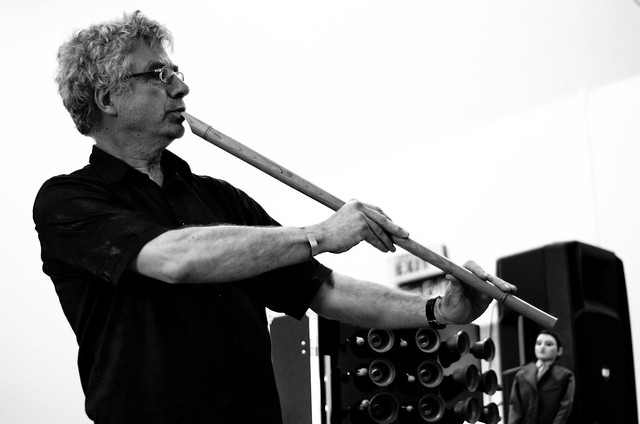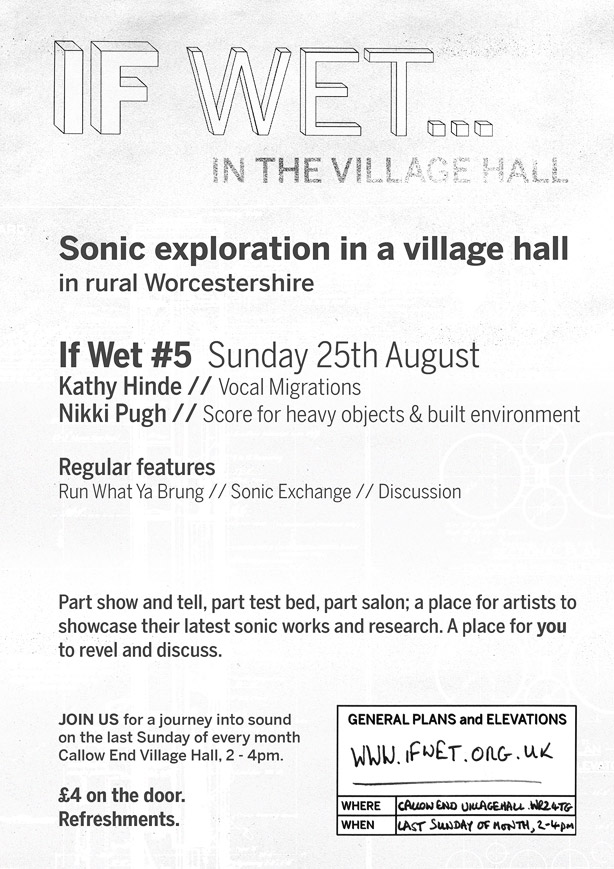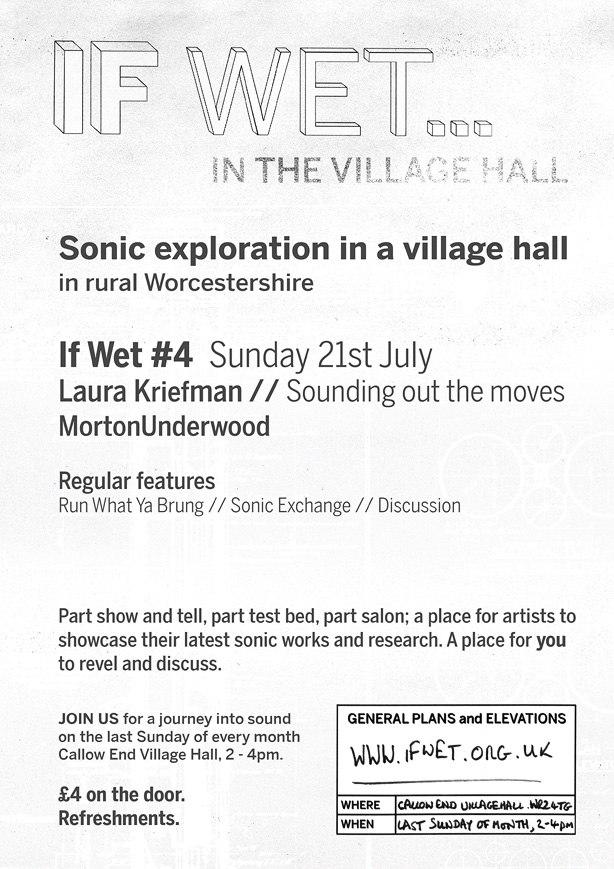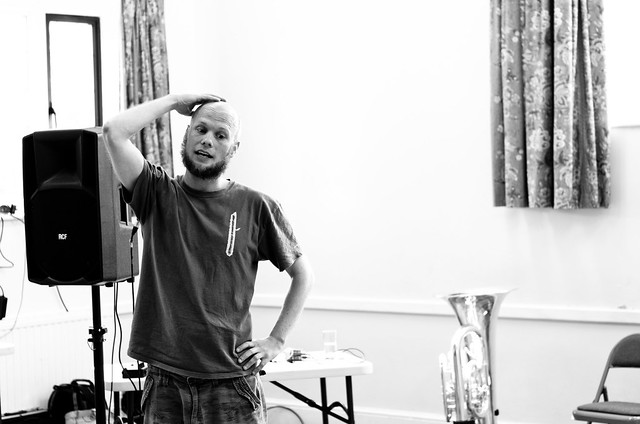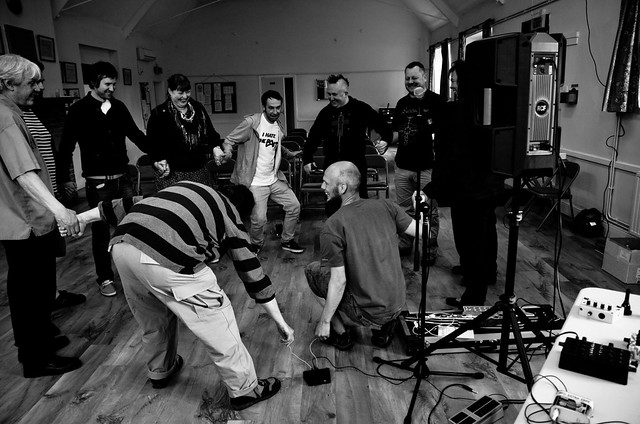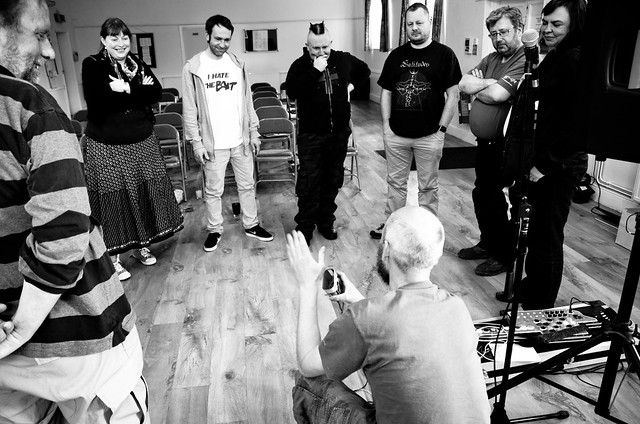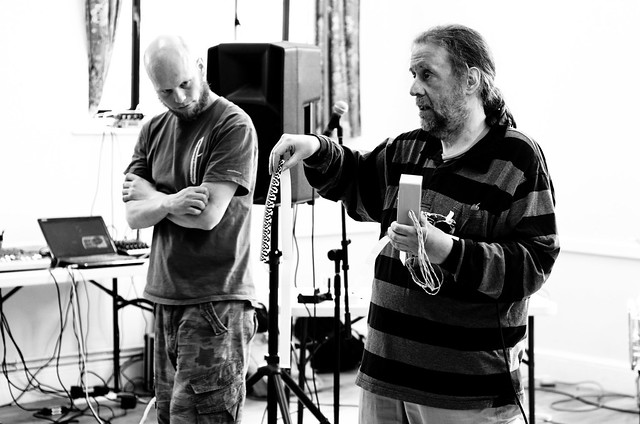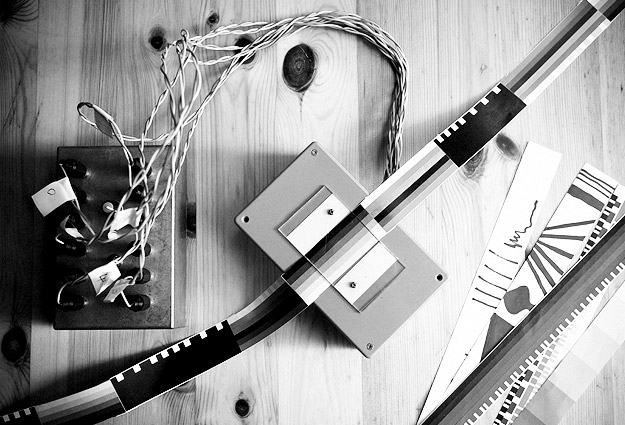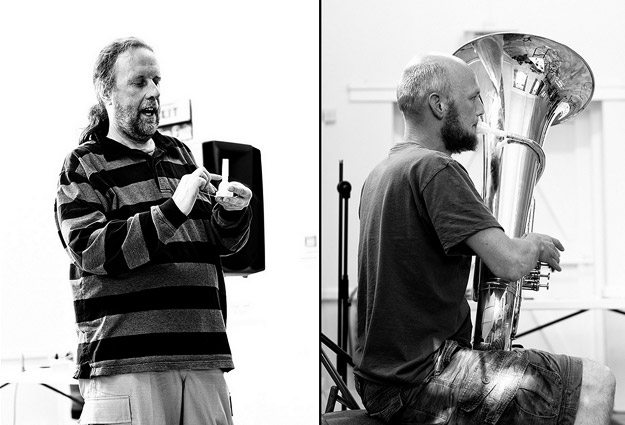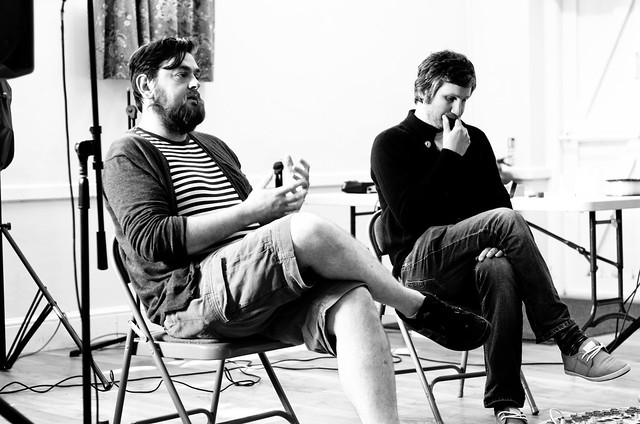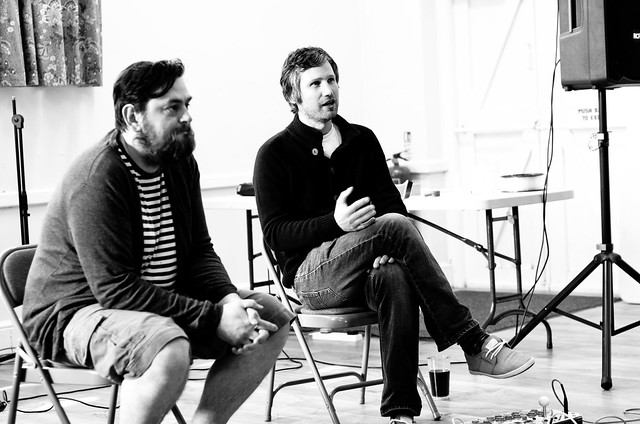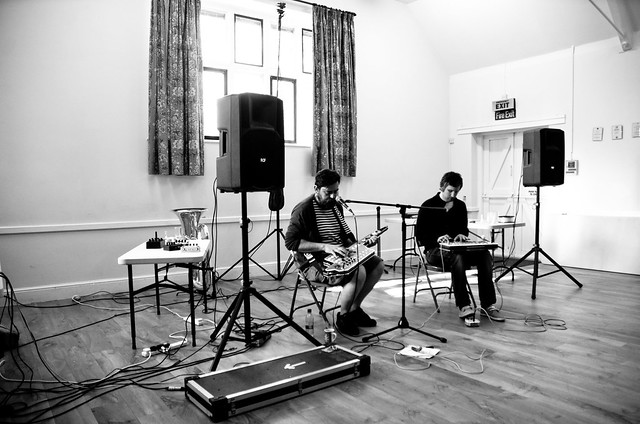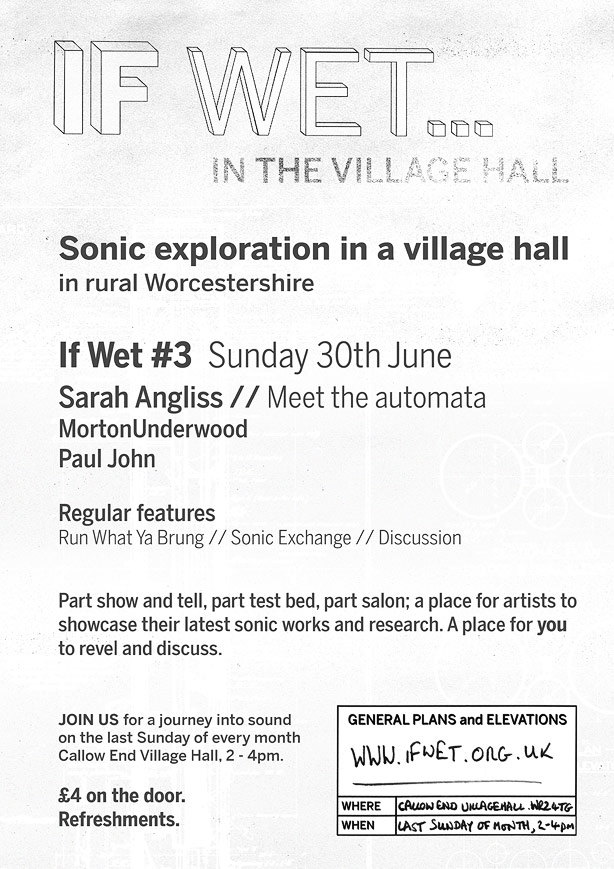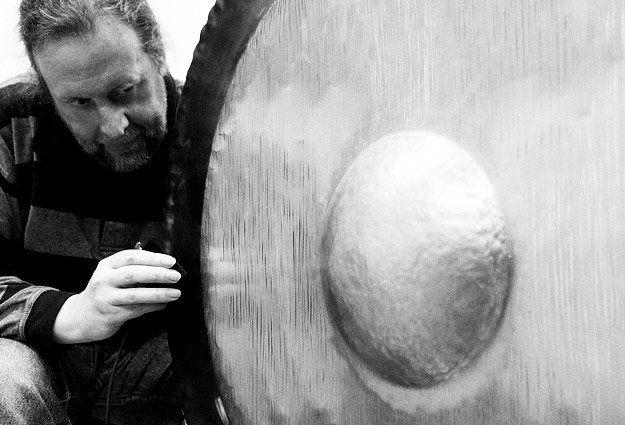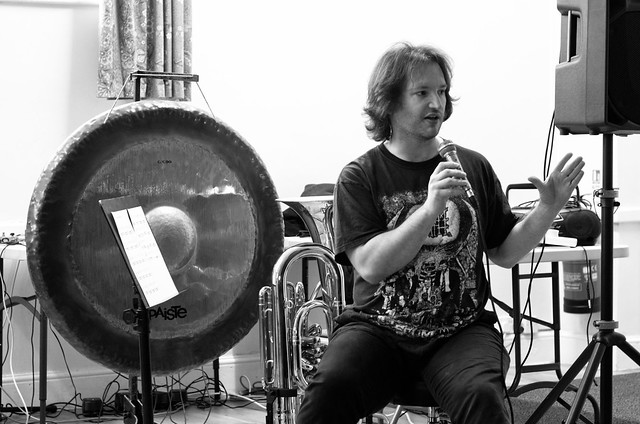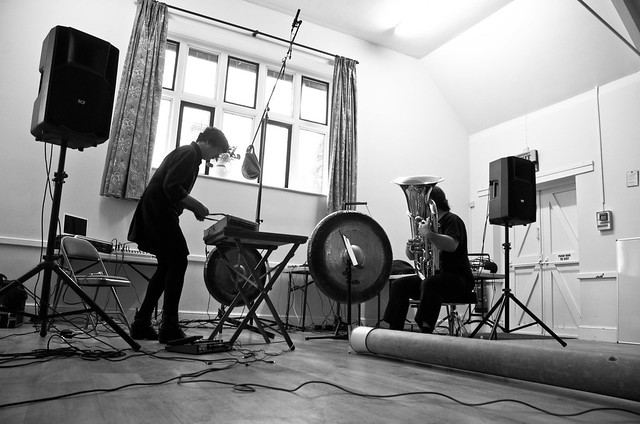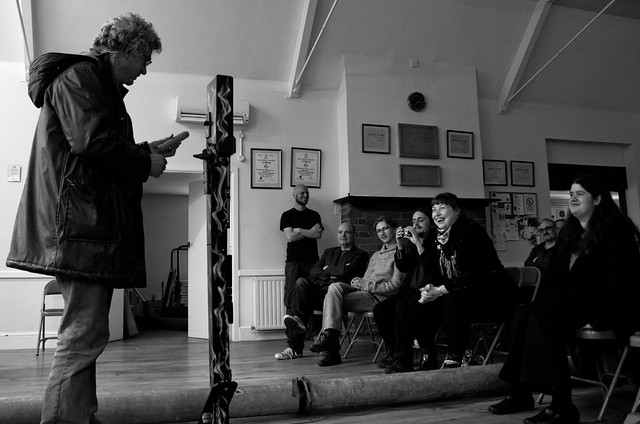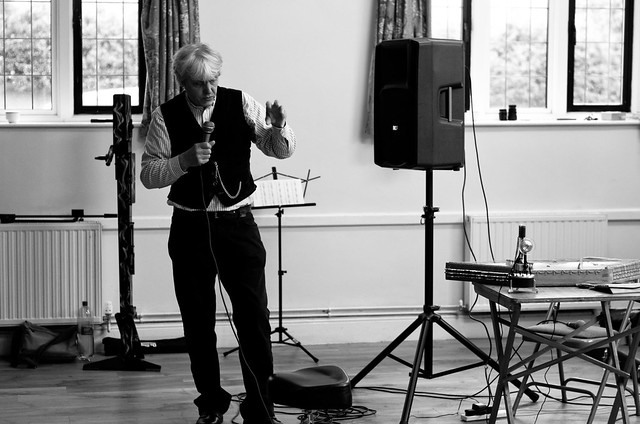If Wet #5 was an unusually interactive event – people even went outside! We merely introduced this If Wet, with no further input. As ever our guests did us proud.
Here is the full audio recording, in three parts: Part1 / Part2 / Part3
Here’s an overview of what went on, so you can access topics of interest:
Welcome
“We set up If Wet […] as a bit of an antidote to the rock/blues nights there are throughout the region. We didn’t really feel there was a requirement for another one of those, so we decided to set this up.”
Nikki Pugh
[03:30 – 36:45 | Part 1]
Nikki Pugh introduced us to her work related to space and in particular her project Score for heavy objects and built environment.
“You know there is this whole drive to make technology smaller, more invisible, I just like the idea of going ‘Raggghh here it is!’, and I’ve got to carry it.”
[Nikki discussing her huge, heavy tubes used for this project]
“Inside them […] a micro-controller. As small computer, based on the Arduino platform. It’s three things really: it’s little PCBs with computer chips on them, it’s also software that is designed for artists to use, and a massive support community as well.”
“Inside here I’ve got two GPS receivers […] just the raw component. […] and a solenoid.”
“I view these as this kind of expanded, augmented sense, and use it to pull people’s attention to the built environment around them in different ways. […] I walked down New Street in Birmingham and because I was carrying this kind of equipment with me, suddenly noticed OH! there are trees all down New Street. Just because it made me raise my eye-line and look up. […] To try and make people tune in in different ways.”
“We’re just going to play you some of the data recorded on the walk. […] It’s the data themselves played back in the same way that they tap as you carry them around. […] It’s quite a direct link back to all that sweating and swearing.”
“Because it’s quite an abstract process I wanted to give you the opportunity to experience these yourselves.”
We all head outside with the Heavy Objects.
Kathy Hinde
[00:20 – 55:00 | Part 2]
Kathy Hinde discusses her project Vocal Migrations and the influences that led her to create the project.
“My background is working with music and visual art. I’ve never really wanted to decide between the two, I’ve always wanted to do both.”
“I got involved with an organisation called COMMA, which stands for Contemporary Music Making for Amateurs. That’s using the word amateur in its original meaning, which means for the love of it.”
“We were doing full orchestra pieces that were for wine glasses, fire extinguishers and you know, cellos and violins and pianos. […] The way that some of the composers chose to deal with this mixed ensemble of different abilities and maybe odd instrument combinations were really interesting. There were all sorts of different strategies.”
“One of the pieces was working with the composer Terry Riley. […] COMMA did the UK première of this piece with Terry Riley. […] Terry Riley was conducting. Not really realising the significance of how great this guy is; these were really formative experiences.”
“Moving on to my piece Vocal Migrations, I wanted to work with this idea of an open score.”
“There is so much in nature that creates incredible complex beauty that works with very, very simple rules.”
“It’s inspired by how bats use sound to see. […] There is a guy in America called Daniel Kish who is blind who has taught himself to echolocate using clicks.”
“It’s this idea of creating a situation or a behaviour for people to be immersed in. I think once you remove sight then there is something quite interesting happens in terms of having to trust this device, having to really listen […] and there is this point at which you really relax into it, and sort of go I’m OK, I can just use my listening to these sounds to make sense of my environment.”
Run What Ya Brung
[01:05:14 – 01:16:45 | Part 2]
We run a regular feature at If Wet in which members of the audience are invited to bring along and demonstrate instruments, sound objects and sonic oddities. This month we had a viola da gamba and recorder piece, an iPhone drone app and a bass string drone instrument.
Tim Cranmore and Ange
“We are just going to play a bit of music, if I dare mention the word.”
“The Viola da gamba came before all the other stringed instruments.”
Simon Gray
“A lot of us who make drone-based music will have an app called iTablaPro, which as well as having tabla drums has a tanpura, which generates Indian drones. When we are playing drone-based music we don’t always want to have the Indian sound, we might want an electronic sound.”
Richard Windley
“Then I came across this reference to an early instrument called a Trumpet Marine (sic). it was a single stringed instrument and rather than fret it you played the harmonics on it. And then I remembered something a lap steel player showed me and that is if you play a harmonic on an open string and then slide the bar up the harmonic actually follows the note, […] which surprised me.”
NOTE: the details at the end of Part 3 of the audio about our November fundraising event are incorrect. Keep your eye on THIS PAGE for details!
________________________________________
The full set of Pete’s photographs of If Wet are available here.
Everyone who presented! Everyone who engaged and provided feedback. Everyone who came. Kavita for cooking, running the bar and tidying up. Pete Ashton for taking photographs.

